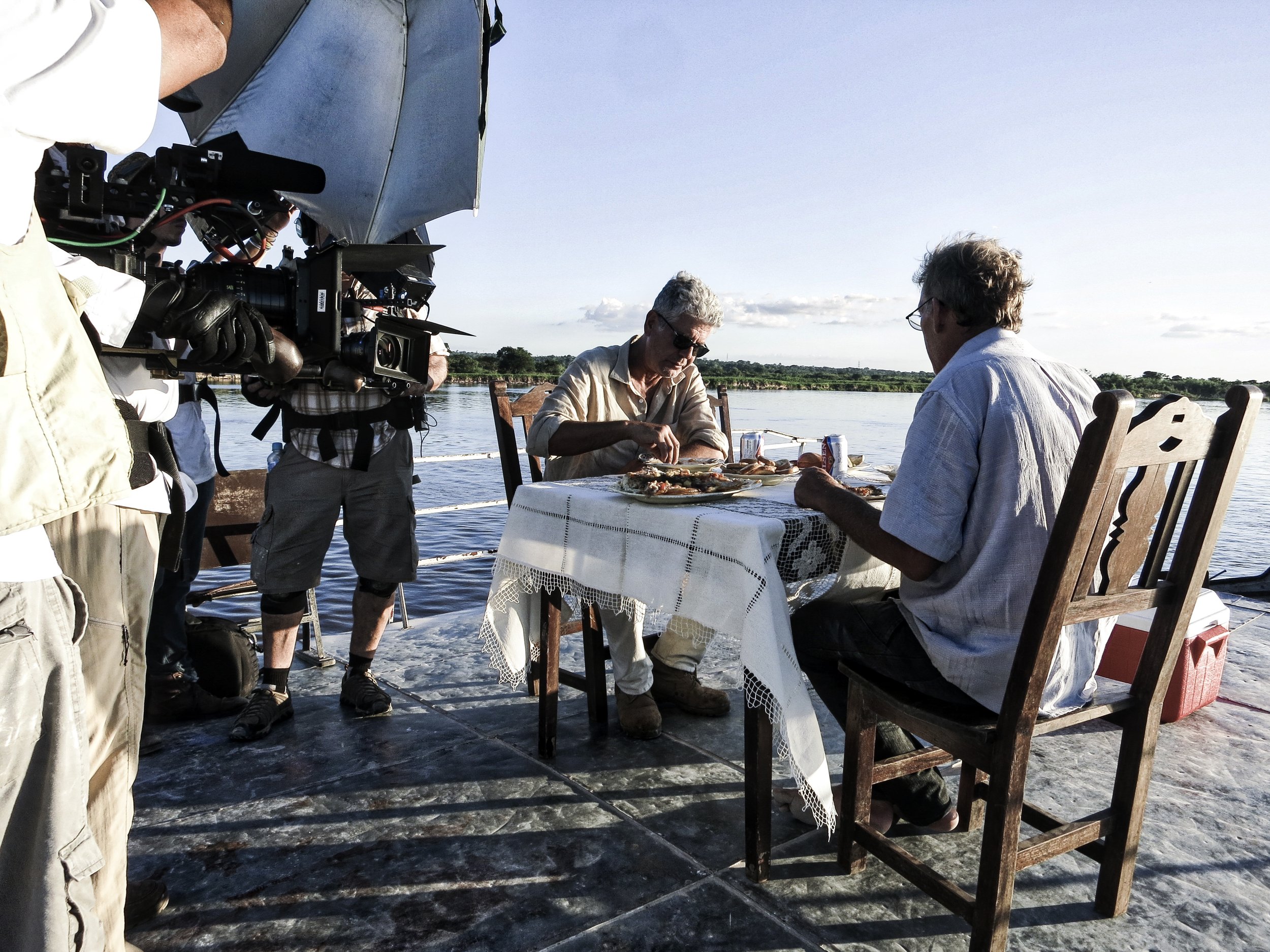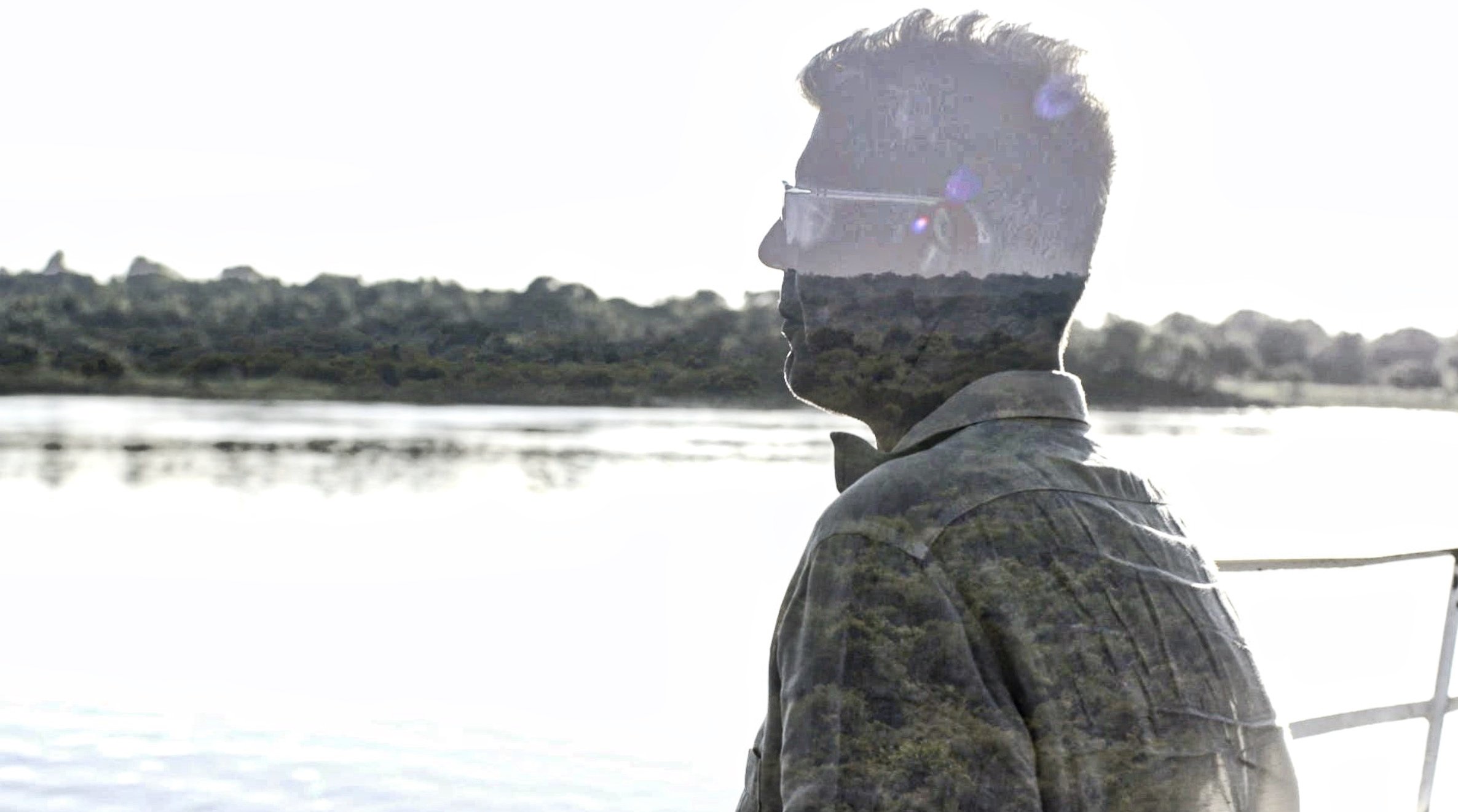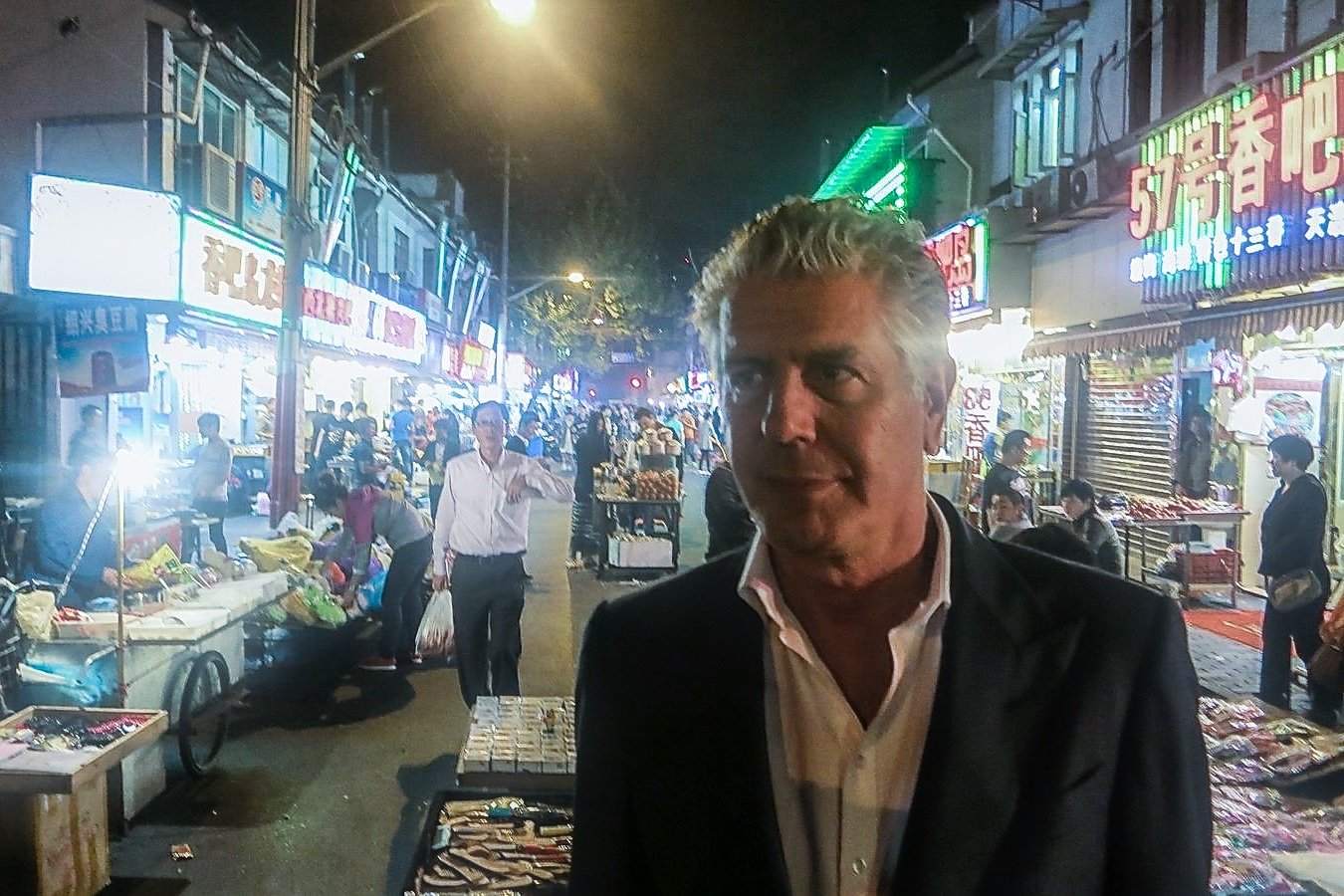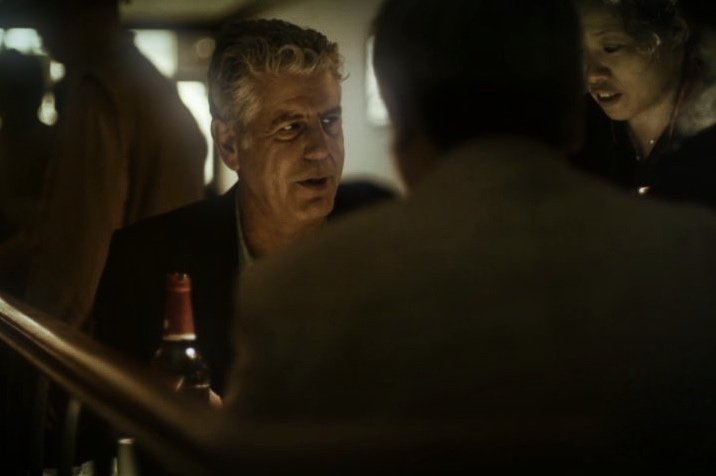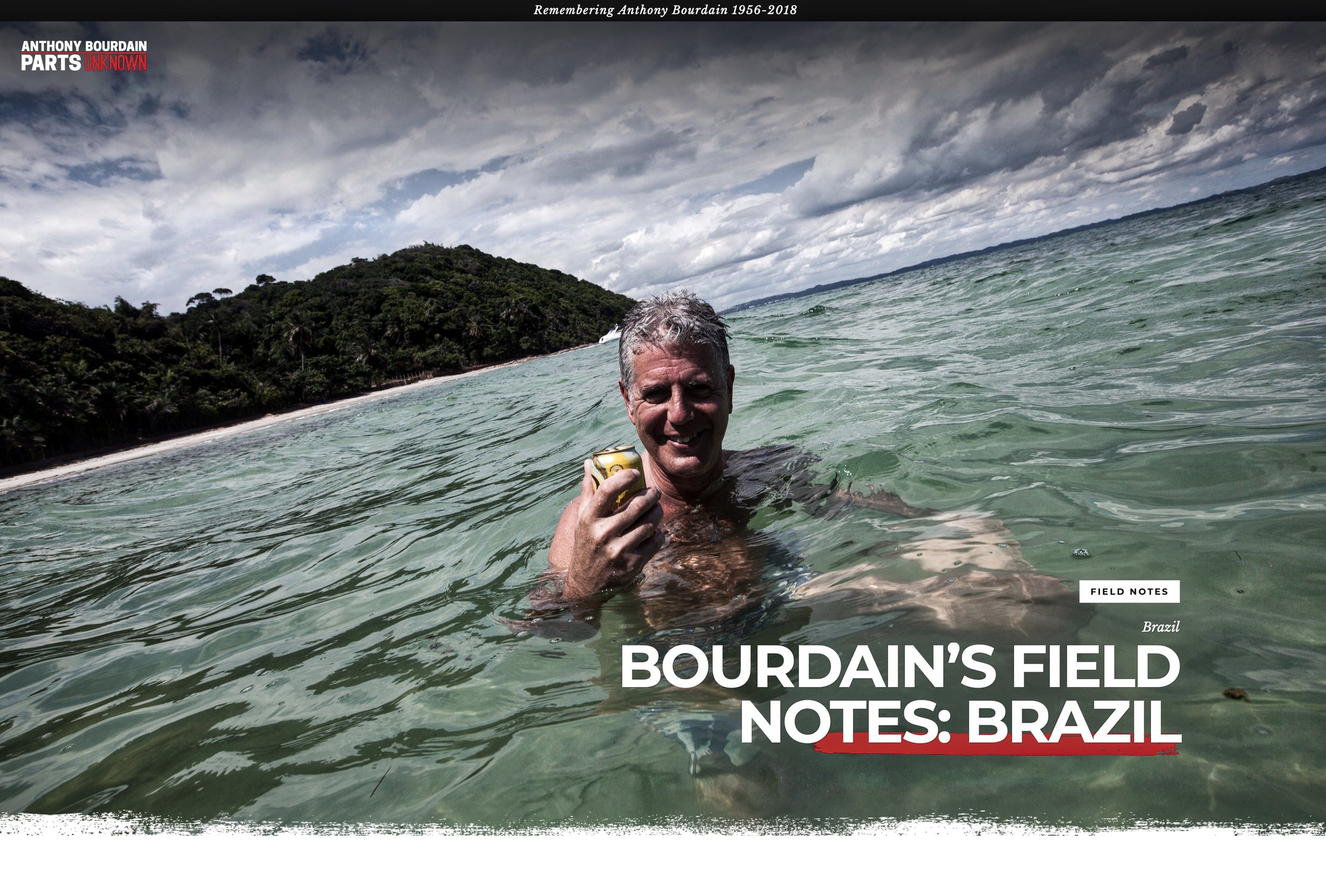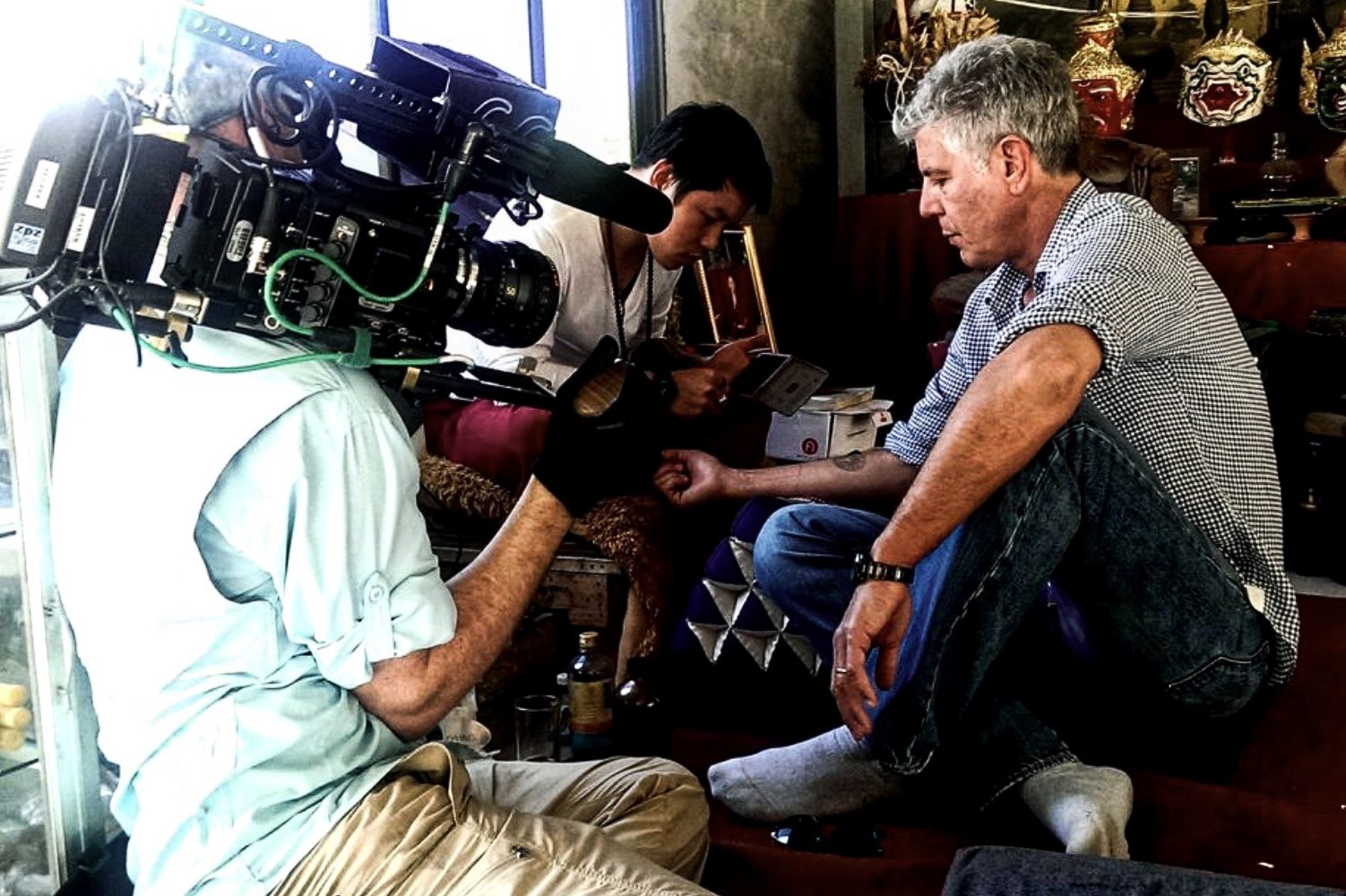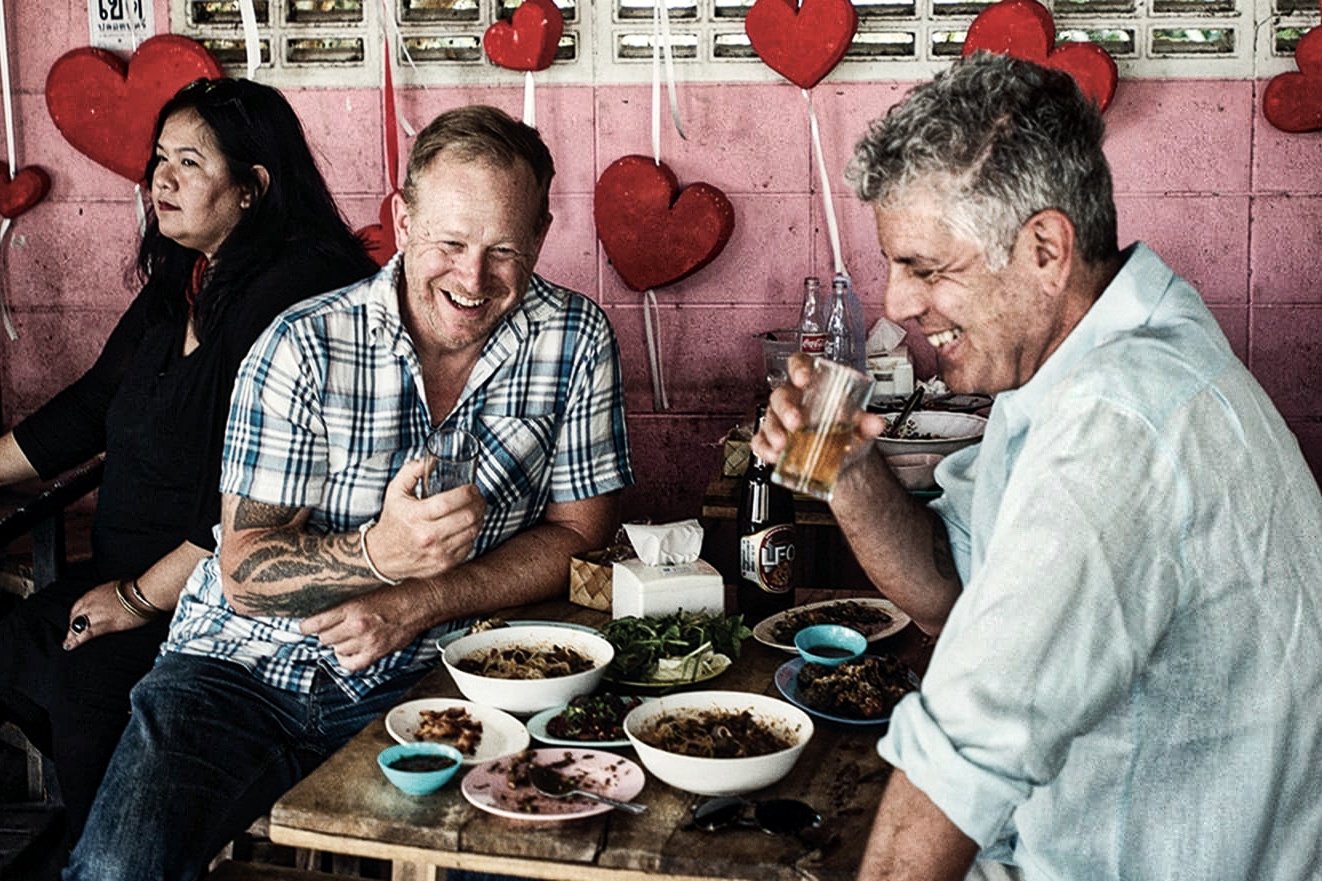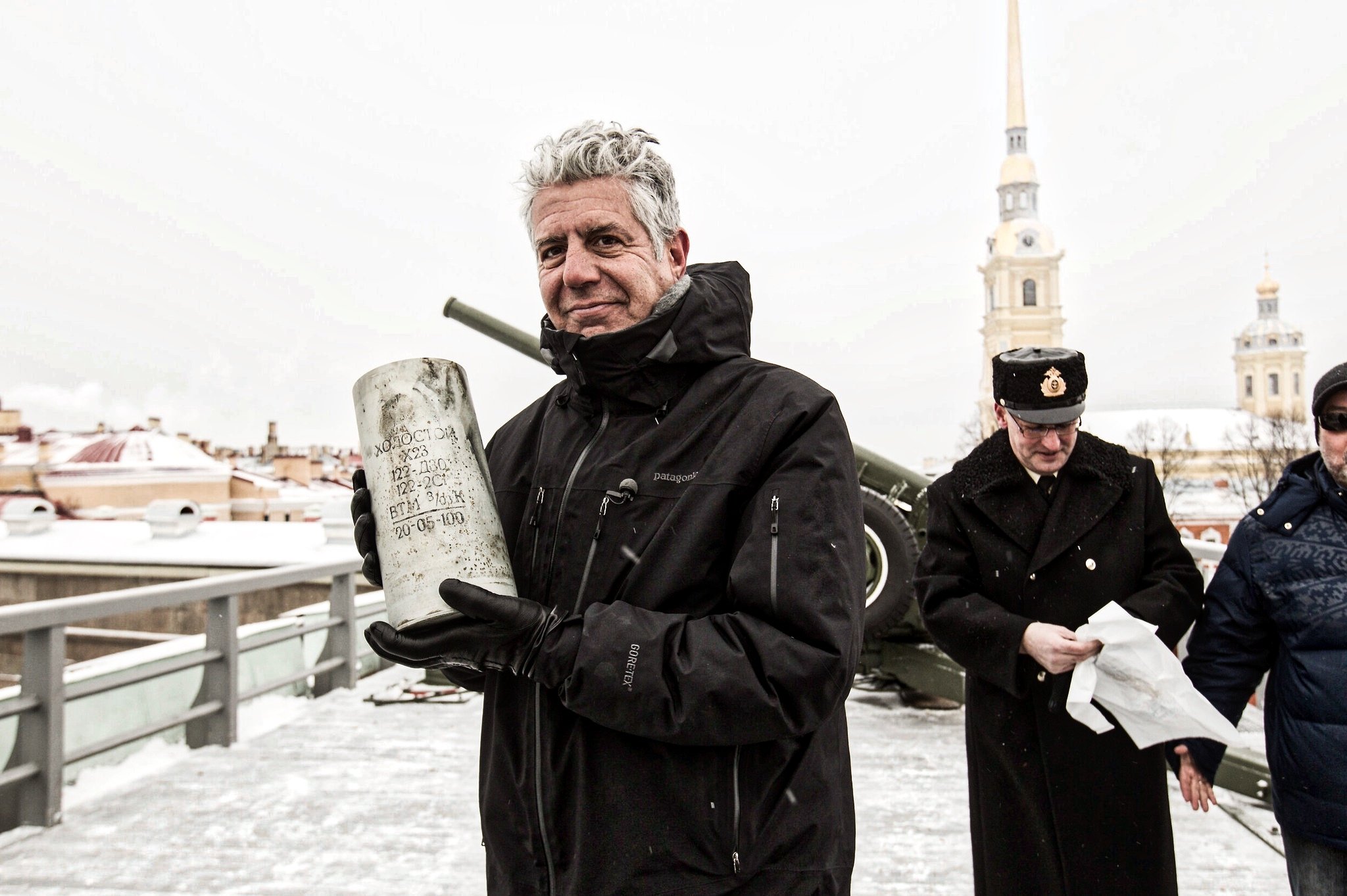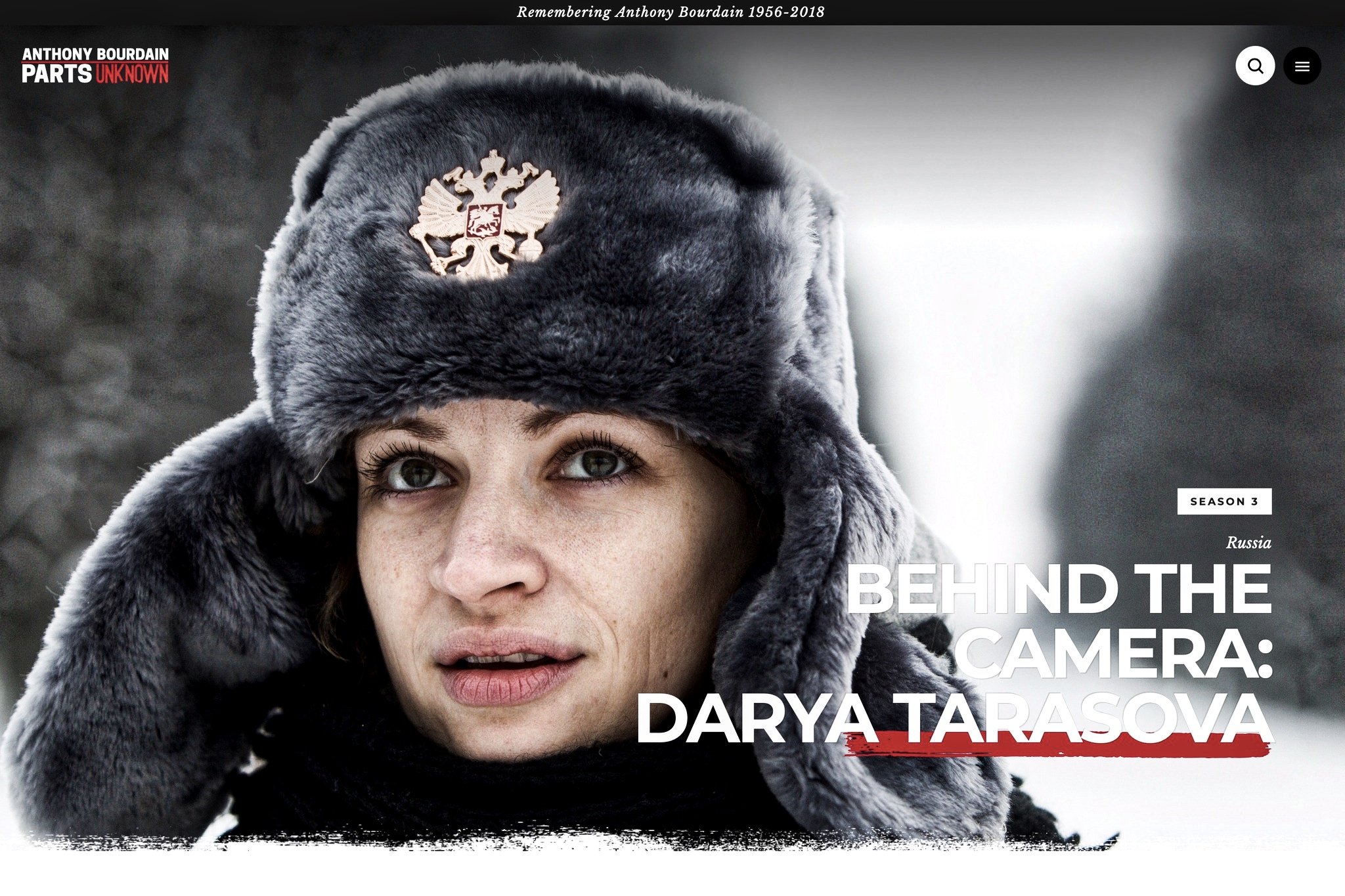Parts Unknown meets Finding Your Roots in an hour oft described as one of Bourdain’s more underrated outings, as he ventured down the jungle rivers of Paraguay to find out exactly what happened to his great-great-great granddaddy Jean Bourdain in the 1850s. Cue the Apocalypse Now music.
Please spare a thought, if you will, for Anthony Bourdain.
There he was in Paraguay, a land-locked country of sweaty, impenetrable jungle, murderous heat and humidity, mosquitos the size of wasps, virtually every tropical disease known to science, a long history of, in Bourdain’s words, “an unending line of dictators,” not to mention a long, colourful history (it is rumoured) of cannibalism. Talk about Kitchen Confidential and the need to keep certain practices, well, confidential.
Bourdain was searching for whatever happened to his long lost great-great-great grandfather, Jean Bourdain, hoping against hope that the missing link in his family lineage would turn out to an adventurer with a storied past worthy of the tao of Bourdain.
Then, midway through the Parts Unknown episode Paraguay, which aired 10 years ago this October, he learns that great-great-great grandad was a chapelier.
A hat maker.
“A hat maker?” Bourdain looks, if not downcast exactly, something close.
“I have to say that disappoints me. Like, a lot.
“The whole elusive wing of mysterious South American Bourdains were the Project Runway contestants of their day?”
The word disappointment doesn’t even begin to cover it.
It’s as if you had a Finding Your Roots episode devoted to your own family history, only to find out that you come from a long line of certified public accountants. Honest ones, mind, but seriously, how exciting can that be?
But wait, there’s more, Bourdain learns just moments later.
It turns out that at some point during Jean Bourdain’s seemingly somnolent, short life in 1850s Paraguay — yes, he died there — it turns out that he requisitioned a shipment of 200 boxes of fireworks.
Wait, what?
Fireworks?
There were not even more than 200 or 300 wealthy families who, living in Paraguay at the time, might, sometimes on a birthday perhaps, pop off a firecracker or two. But 200 boxes worth? And how big are the boxes?
No, no, no, you’ve got this all wrong, the local private investigator Bourdain enlisted to help him in his search tells him. It turns out that feux d’artifice — the French word for fireworks — was Paraguayan code for something else.
“So are you suggesting something untoward?” Bourdain asks hopefully.
“Weapons.”
“Weapons?”
“Yes.”
“He was a merchant of death? Awesome. You know, my aunt always said he was a gunrunner.
“We figured she was full of s**t. I mean, she also said she was in the Resistance, you know, but everybody in France said that.”
Maybe great-great-great grandad wasn’t a boring guy after all.
The revelation is almost enough — almost — to make this 21st-century river expedition seem worthwhile. Bourdain always said Apocalypse Now was his favourite film. One of them, anyway.
There’s something about these journeys up jungle rivers in search of god-knows-what that appealed to him.
That, and the ancestral angle.
Bourdain: “Sometime in the mid-19th century, 1850s, Jean Bourdain emigrated to South America, first in Argentina but apparently came here. That's really almost all I know for sure.
“Did he die by the sword? Did he die of old age? Did he die of syphilis? I have no idea. I'd like to know. I would like to find a gravesite. That would be great.
“You know, my father died at 57. His father in, I think, in his 20s, I believe. I'll be 58 in June. I think I am the longest-living male Bourdain in possibly ever.”
“So you're lonely in the world?” his fixer asks him.
Bourdain: “I am lonely in the world, yes. If I could solve the mystery of the elusive Jean Bourdain, it would make me very happy.”
Here’s the thing.
In 104 episodes over 12 seasons, Paraguay is often cited as one of Bourdain’s most unfairly overlooked outings.
In a 2019 interview with The Takeout food website, Tom Vitale, Bourdain’s director-producer, father confessor and spiritual consigliere for some 16 years, cited Paraguay as one of his personal favourites of the Parts Unknown episodes he made with Bourdain. (Libya, Copenhagen and Iran were the others.)
As recently as five months ago, a Bourdainophile posted a subreddit on Reddit calling Paraguay Bourdain’s most underrated episode.
Some of the follow-up comments ranged from, “I really like it when he (went) to non-touristy Latin American countries,” to, “As someone who lived there (Paraguay), that is a favourite of mine as well. (He) did a pretty good job of communicating the feel of the place. Got a few things wrong … for instance, some of his conclusions about Paraguayan history are wrong.
“Early presidents that he calls unhinged dictators” — well, to be fair, Bourdain’s actual words were, “the most maniacal, megalomaniacal pisspot dictators … — “are widely regarded as national heroes within the country. Though to an outsider, I could see how you would see them that way. They were a bit unhinged, and they were certainly dictators.”
Oookay…
“Foodwise (though), he did a great job. Nearly everything he ate was common and typically Paraguayan.
See? Tastes likes chicken.
Back to Jean Bourdain.
You could be forgiven for wondering at this point, why would a dashing dandy and would-be adventurer from small-town Bordeaux with a yearning for exploration and danger consider moving half a world away to a disease- and insect-ridden tropical jungle to find his destiny? Funny you should ask.
The mystery of what happened to great-great-great granddad in the jungles of Paraguay consumed Anthony Bourdain and his younger brother Chris for the best part of their adult lives. Bourdain might never have actually believed he would get there one day but, hey, CNN was paying the bills, and this annoying guy Vitale kept insisting it would make good TV, so why not?
Besides, the history of the Colony of Nueva Burdeos — its actual name, by the way, not the “Nouveau Bordeaux” bandied about in the show — is, well, real.
According to no less an authoritative source than encyclopedia.com, the colony was an “abortive colonization experiment in the Paraguayan during the 1850s aimed to improve relations with Europe and increase agricultural production, but failed on both counts.
“The opening of Platine waterways after the fall of the Argentine dictator José Manuel de Rosas in 1852 enabled Paraguay to reach out to foreign nations for diplomatic and commercial contacts. The 1853– 1854 European tour of Francisco Solano López sealed several such agreements and opened the door to European immigration into Paraguay. French representatives, responding to López's overtures, agreed to permit the transport from Bordeaux of some four hundred settlers who, with the material aid of the Asunción government, would build an agricultural colony in the Gran Chaco. The French settlers began to arrive in May 1855 … but from the first, everything went wrong.”
Really? What could go wrong?
“A lot of people have ventured to Paraguay over the years in search of some sort of dream,” Bourdain later wrote in his Field Notes. “I’ve looked for (my) mysterious ancestor before — in Uruguay with my younger brother, Chris. We were disappointed when our trail ran cold. We were left with a cryptic reference to the news that Jean had died in Asunción, Paraguay, which begged the question: What the hell was he doing in Paraguay? And where is Paraguay anyway?”
Where indeed.
Is Paraguay one of Parts Unknown’s finest hours?
Mais oui. Certainly.
It’s funny, too. Often when least expected. As in the moment when Bourdain considers buying a shotgun while making his way up the jungle river.
“Let’s see … I am tempted by the offer of a cheap shotgun for sale. Me: Fear, hot sunny day, a shotgun, a producer. That’s not a good mix.”
Oh dear. Cue the producer. Tom, over to you.

